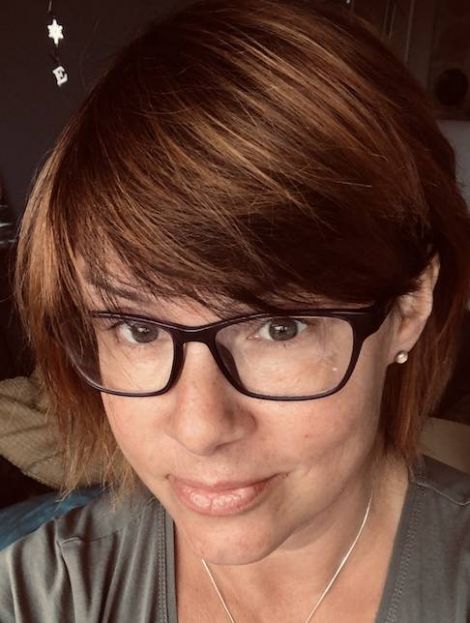Market House / Mediation service expands and takes on extra staff
A ONE stop shop for mediation and conflict resolution of all kinds operates from Market House in Lerwick under the Relationships Scotland – Shetland banner.
The new name of what was previously Mediation Shetland was adopted a year ago when it joined forces with Couple Counselling Shetland.
The national network provides family mediation, couple counselling and is a child contact centre. Shetland also uniquely took over community mediation about a year and a half ago.
Relationships Scotland – Shetland manager Shona Manson said: “I guess we do basically anything to support people and help them work through conflict; whether that be a neighbour, ex-partner or current partner of another family member’ said Manson.
The organisation is presently interviewing for a number of new employees and sessional staff as well as an administrator and client coordinator for the growing project.
It already has two sessional couple counsellors in training who will be employed per session once they are qualified, and two sessional family mediators.
The two additional 20 hour posts are for mediation practitioners to train in community and family mediation alongside general family support and children and young folk support.
By mid-May there should be four office based staff alongside four sessional mediators and counsellors which will enable the team to meet growing demand for all aspects of the services.
Manson added: “We offer child focused mediation, which is how the core service started, and that’s where parents have separated and they need to come together to make plans for how their bairns spend their time between their two parents.
“Additionally we offer what we call ‘talking families’, because it’s not necessarily just parents – it might be a 24 year old and her mam are having conflict. It might be adult siblings having issues with something; so talking families encompasses everything outwith child-focussed mediation but using the same skills and processes.
“Mediation looks forward, so we hear the story about what’s happened, but we bring folk together, if it’s safe to do so, and we help them establish common ground to find where is it they’d like to get to, and how they would like the future to look.
“Everybody gets an individual appointment to assess their suitability, to make sure there’s no risk factors that would prevent them using the service like child protection issues, substance misuse issues, domestic abuse or mental health. We also work with people individually where either the other party doesn’t wish to get involved or where the afore mentioned risk factors would deem the process unworkable
“We hear their story, and that’s really important, as everybody needs to tell their own story and our job as mediators is not to say we believe or disbelieve because invariably you get the other person’s version of the story, and theirs is true to them. We kind of have this thing that actually there’s no such thing as the truth!”
In a single person mediation, after an interview, the mediator will send an invitation to the person on the other side of the mediation, “whether that person is an ex partner, whether that person be whoever” and ask if they will participate.
In the past, said Manson, if the second party did not want to engage, that was pretty much the end of the story.
“After a while I thought this seemed like a real waste of somebody’s motivation so we developed a bit of the service that we call PS 1 – problem solving for one.
“So what we now do is invite party one back in to say ‘OK in the absence of the “other” wishing to mediate with you, there’s always things that we as individuals can do to change a situation.’
“We will speak to them about, say, if you are having a conversation on the phone with their ex-partner that breaks down, what is it that triggers it? [the problem]: Is it something that you say, is it something that they say? How about if you said something differently, would that evoke a different response?
“You are essentially using the same process [as with a couple]. You are here and where do you want to go? – but you are doing it with one person.
As part of the child focused mediation service Mediation Scotland – Shetland also offers ‘child consultation’.
Manson said: “More and more we realise the importance of children and young folk having a voice: being able to say ‘well actually I would really like to spend more time with dad, or I would like Mum and Dad to stop slagging each other off, or I never see my granny anymore’.
“We make it very clear to them they are not the decision makers but we give them a voice, which I suppose is empowering for them, and through the mediation process we would feed their wishes and ideas back to the parents.
“And that can help them because separated parents can often get so caught up in their own emotions and feelings from separation that the bairns need an active voice and actually feeling heard can be really powerful for bairns.
“We also now do one to one support with children and young people that have been impacted on by their parental separation, because what we have noticed is that they do not have a mental health issue that they would get access to child and adolescent mental health support. They do not necessarily need counselling but they need somebody to speak to that understands the separation and divorce process and can help them through that, so we have extended our service.”
According to Manson Women’s Aid is presently the only place that offers free counselling for young folk. But because their primary focus is women and children affected by domestic abuse there is no guarantee of counselling for young folk that have experienced family breakdown.
The NHS’s Child and Adolescent Mental Health (CAMS) will offer counselling to children that have a clear mental health issue, such as extreme anxiety, but it will be pathological rather than the result of an external factor like separation.
Another element is ‘couple counselling’ where couples either living together or separately with relationship difficulties can come together with a counsellor to address that.
“Sometimes folk come to couple counselling and they conclude this relationship does need to end,” said Manson.
“The good thing with us being a merged service with family mediation and couple counselling is that if they do have bairns we can actually help them through that whole process of how do you separate well and dovetail the end of one part of a service into another part of a service, and that is where it does work really well together.”
The final part of the service is ‘community mediation’, which is basically about settling neighbourhood disputes – whether folk are arguing over parking places, overgrown trees, or lights or noise.
Manson said it was common, for example, for an upstairs neighbour not to realise how noisy their walking in stilettos on laminate flooring was for the downstairs neighbour.
“We deal with really anything that is causing conflict, but noise is probably one of the biggest things,” she said.
Funding for community mediation comes from the SIC environmental health budget, which can supply noise equipment to enable “noise swaps”, enabling neighbours to hear how much noise they are making.
Manson is a trained mediator and also supervises the other mediators. She set up the popular local charity Mind Your Head, though is no longer involved with that.
She said that it was perhaps little known that Relationship Scotland – Shetland operates on a charitable basis, and while the Shetland service gets some funding nationally and from the SIC under environmental, prevention of homelessness and children and families banners, any public support is also very welcome.
Become a member of Shetland News
Shetland News is asking its readers to consider paying for membership to get additional perks:
- Removal of third-party ads;
- Bookmark posts to read later;
- Exclusive curated weekly newsletter;
- Hide membership messages;
- Comments open for discussion.
If you appreciate what we do and feel strongly about impartial local journalism, then please become a member of Shetland News by either making a single payment, or setting up a monthly, quarterly or yearly subscription.




